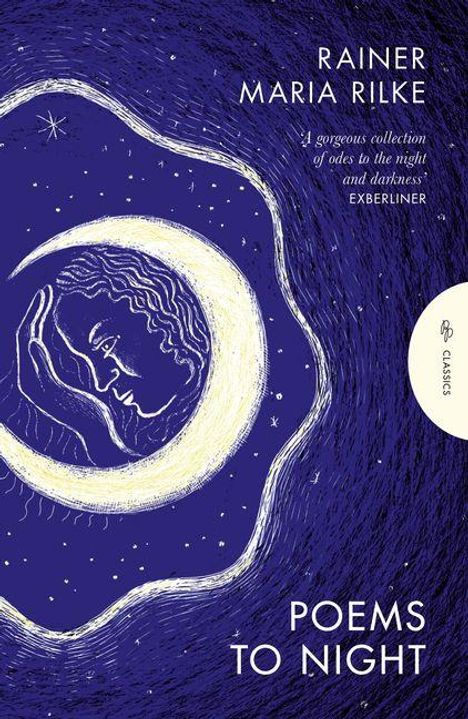Rainer Maria Rilke: Poems to Night, Kartoniert / Broschiert
Poems to Night
- Übersetzung:
- Will Stone
- Verlag:
- Pushkin Press, 11/2025
- Einband:
- Kartoniert / Broschiert
- Sprache:
- Englisch
- ISBN-13:
- 9781805333135
- Artikelnummer:
- 12233573
- Umfang:
- 96 Seiten
- Gewicht:
- 95 g
- Maße:
- 192 x 126 mm
- Stärke:
- 15 mm
- Erscheinungstermin:
- 20.11.2025
- Serie:
- Pushkin Classics
- Hinweis
-
Achtung: Artikel ist nicht in deutscher Sprache!
Klappentext
This collection of haunting, mystical poems of the night by the great Rainer Maria Rilke is the only English translation to bring them all together
In 1916, Rainer Maria Rilke presented his friend Rudolf Kassner with a notebook, containing 22 poems meticulously inscribed in his own hand and bearing the title Poems to Night. This evocative sequence of poems, which echoes some of the great themes of German romanticism, is now thought to represent one of the key stages in the creative breakthrough and spiritual evolution of the preeminent European poet of the twentieth century.
This translation was the 1st to bring all the poems together in English and is enhanced by the translator's valuable introduction and a rich selection of further poems Rilke dedicated to night at various stages of his life, providing fascinating insight into Rilke's development.
The poems recall all of the great poet's important themes: death and longing, the troubling reconciliation of beauty and suffering, and a search for transcendance. These deep questions circle the imagery of night in Rilke's intensely lyrical style: darkness, the stars and the moon wheel through the verses, and the play of light and dark beomes an evocation of life's duality. No other poet was as singularly devoted to beauty or as capable of gifting its consolations to the reader--a volume to cherish on stormy nights and peaceful ones.
Biografie (Rainer Maria Rilke)
Rainer M. Rilke (1875-1926), der Prager Beamtensohn, wurde nach einer erzwungenen Militärerziehung 1896 Student, zuerst in Prag, dann in München und Berlin, weniger studierend als dichtend. Die kurze Ehe mit der Bildhauerin Clara Westhoff in Worpswede löste er 1902 auf. Er bereiste darauf Italien, Skandinavien und Frankreich. In Paris schloß er Bekanntschaft mit Rodin und wurde dessen Privatsekretär. Bereits nach acht Monaten kam es zum Bruch. Es folgten unstete Jahre des Reisens mit Stationen in verschiedenen Städten Europas. Nach seinem Entschluß zur Berufslosigkeit und zu einem reinen Dichterdasein war Rilke zu jedem Verzicht bereit, wenn es dem Werk galt. Er opferte sein Leben seiner Kunst und gewann Unsterblichkeit, indem er unerreichte Sprach- und Kunstwerke schuf.§Im Ersten Weltkrieg war er zur österreichischen Armee eingezogen, wurde aber aufgrund seiner kränklichen Konstitution in das Wiener Kriegsarchiv versetzt. Rilke starb nach langer Krankheit in Val Mont bei Montreux.
